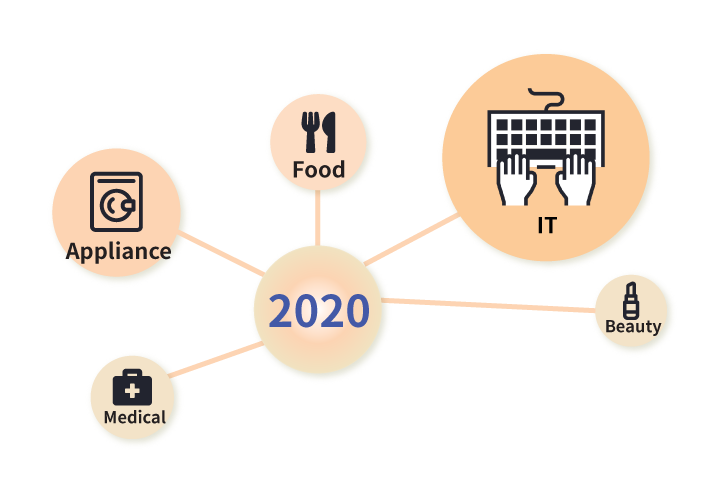As the COVID-19 pandemic wore on during the whole year, the calendar finally professes that 2020 is coming to a close. This year – even more than others – has changed so much of our lives, with devastating large-scale losses of life and economic downturns globally, but also positive experiences for others, including growth and unexpected success for some business industries. And we could get an enormous amount of lessons in between; deeply upon how they’ve grown and how they can leverage that learning in today’s uncertain business landscape.
As covering the business ecosystem in East Asia, reporters of the Los Angele Times Asia Journal have met on average more three CEOs of Korean companies every week over the course of year, and selected fourteen companies out of them to get them into the newspaper. The business change that reporters caught was that technology has been fundamental for companies to further development. Half of fourteen companies we covered were IT solutions for better healthcare, and six of them were using artificial intelligence (AI). The pandemic has pushed health and wellness services online, and technologies such as IoT, AI, and Big Data seems to be the order of the day across various sectors such as mobility, education, manufacturing, e-commerce, communication, health, insurance, finance, and many others.
At the same time, what the LA Times Asia Journal found is that it was more challenging for small and medium-sized enterprises (SMEs) and startups to overcome the crisis on their own because of higher levels of vulnerability and lower resilience related to their size. SMEs usually have a more limited number of suppliers. The Organisation for Economic Co-operation and Development (OECD) explains that ‘some SMEs are vulnerable to the disruption of business networks and supply chains, with connections with larger operators and the outsourcing of many business services critical to their performance.’ Furthermore, over the longer term, it may be difficult for small enterprises to re-build connections with former networks, once supply chains are disrupted and former partners have set up new alliances and business contracts.

By giving mainly coverage on SMEs and startups, which are conceived as one of the major growth engines in the future for the country, LA Times Asia Journal now aims to connect them with global partners and companies. In 2020, especially, LA Times Asia Journal established a network platform with Japanese companies by making a formal contract with three companies: Elematec, AdRobo, and Medicaraise. Moreover, to become a global top network partner, Los Angeles Times Asia Journal will continuously expand its partnerships in order to maximize synergy and bridge the gap between the international companies. Several companies – Tokai-Electronics, Marubun Corp, Katase, Yamae hisano, Siroca, and Nexty – are showing their interests to work with the LA Times Asia Journal.
We have a deep need for connection now more than ever before. Los Angeles Times Asia Journal can help to meet that need through our media and network platform. As a global network partner, Los Angeles Times Asia Journal is establishing the network platform between global partners and companies, which will enable sharing of various ideas, experiences, and business cooperation. By introducing a new approach, Los Angeles Times Asia Journal will create new and differentiated value for all possible players.
Kayla Hong
Asia Journal



